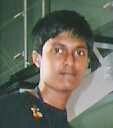Free will and God.
"We MUST believe in free will, we have no choice," the novelist Isaac Bashevis Singer once said. He might have as well said, " We MUST believe in Quantum mechanics(QM), we have no choice."
Early last month, a Nobel laureate physicist finshed polishing up his theory that a deeper, deterministic reality underlies the apparent uncertainity of QM. A week later, two eminent mathematicians showed that the theory has profound implications beyond physics: abandoning uncertainit QM means we must give up the notion that we have free will. The mathematicians believe the physicist is wrong.
It's strinking that we have one of the greatest scientist of our generation pitted against 2 of the greatest mathematicians the world has to offer.
QM is widely accepted by physicists, but is full of apparent paradoxes which made Einstein deeply uncomfortable and have never been resolved. For instance, you cannot ask what the spin of a particle was before you made an observation of it - QM says the spin was undetermined. And you cannot predict the outcome of an experiment, you can only estimate the probability of getting a certain result.
QM works wonderfully well but it is incomplete. One of the major resons many physicist, yearn for a deeper view of reality than QM can offer is their failure so far to unite QM with general relativity and its description of gravity, despite
enormous effort. Yes, indeed a radical change is required and I believe it is around the corner. For more than a decade now, physicist have been working on the idea that there is a hidden layer of reality at scales smaller than the so called Plank length of 10 pow-35 metres. At the deeper level, we cannot talk of particles or waves to describe reality, so we define entities called "states" that have energy. These states behave predictably according to a deterministic laws, so it is theoretically possible to keep tabs on them. However calculations show us that theys states can be tracked for only 10 pow-43 sec, after which many states coalesce into a final state, which is what creates the QM uncertainity. Our measurments illuminate these final states, but bcos the prior info. is lost, we can't recreate their precise history.
The abv said theory explains many QM theories with a lot of beauty. But there is one major stumbling block - the states could end up with negitive energy, which is physically impossible. But we do have some hope. This hope comes in the form of Gerard
't Hooft of Utrecht University in the Netherlands, who won the Nobel prize for Physics in 1999. He says he has found a possible solution for the above stated problem of negitive energy.
What 't Hooft is trying to tell is that while particles in QM seem to behave unpredictably, if we could track the underlying states, we can predict the behaviour of particles.
Others are impressed. "This is a very beatiful that tells us about the world on the smallest scales," says physicist Willem de Muynck at Eindhoven University of Technology. This theory might be loved by physicist but it has a frightening and dangerous consequence for the rest of us. Mathematicians John Conway and Simon Kochen both at Princeton, say that any deterministic theory underlying quantum mechanics robs us of our
free will.
When you choose to eat a chocolate or cheese cake are you, are you really free to decide? In other words, could someone who has been tracking all the particle interactions in the universe predict with perfect accuracy the cake which you will pick?
The answer depends on whether QM's inhernt uncertainity is the correct description of reality or 't Hooft is right in saying that beneath that uncertainity there is a deterministic order.
Arguments abt free will are as old as philosophy itself, and ever since quantum mechanics was proposed ppl have attempted to connect free will to the indeterminacy at the heart of the theory.
Kochen and Conway stress that their theorm doesnt disaprove t' Hooft's theorm. It simply states that if his theory is true, our actions cannot be free. And there is one way for us to tell. Our lives could be like a second showing of a movie - all actions all actions play out as if they are free, but that freedom is an illusion!
I believe that the matter really boils down to person beliefs. The mathematicans can't tolerate the idea that our future may aldready be settled. We are either deterministic machines, or we're random machines. That's not much of a choice.
I welcome this idea bcos i feel for a very very long time philosophy has been separted from physics. There are many important questions to be asked abt free will and i think physics can answer them.


1 Comments:
Saw your comment in my blog,thanks.I no longer use that url.If u r interested u could visit the below
given address.Happy reading!
http://bhavna-thexpression.blogspot.com/
Post a Comment
<< Home